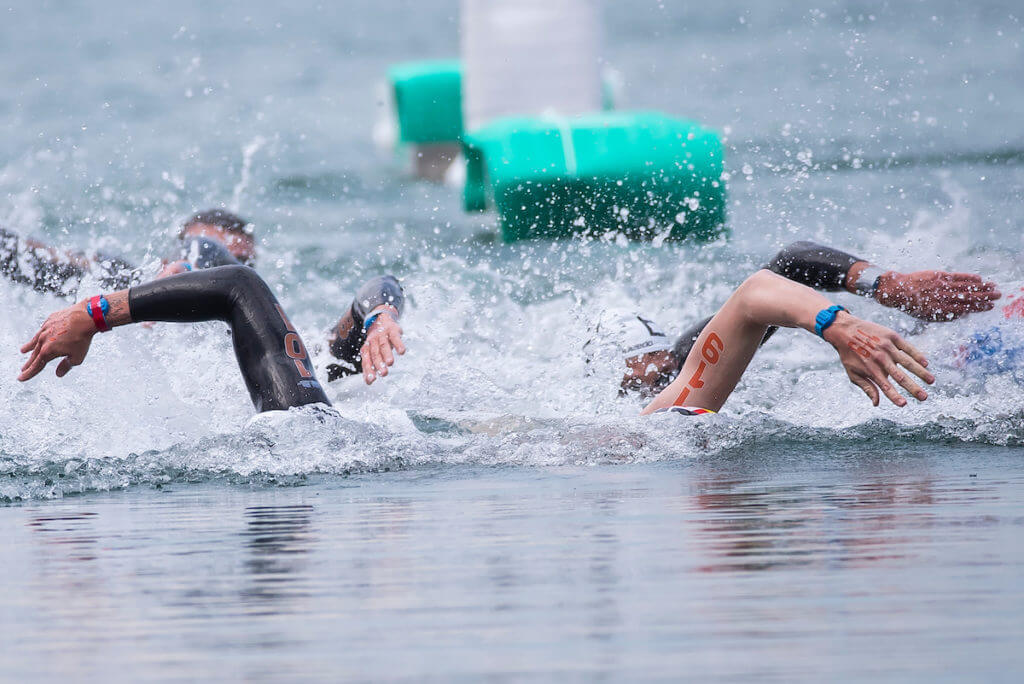International Marathon Swimming Hall of Fame Highlights Ethics Guidelines For Induction

International Marathon Swimming Hall of Fame Highlights Ethics Guidelines For Induction
All Halls of Fame and Honor Organizations wish to create and maintain the highest possible reputation. As a result, all face a similar question: What are the correct and appropriate actions, as well as reasons, which justify an individual (or organization) to be prevented from induction or removed if previously inducted? There are no right answers. Every organization must find its own way.
Two organizations have faced high profile situations in recent years.
The 55 members of the Board of Governors of the Academy of Motion Picture Arts and Sciences voted to expel Harvey Weinstein on Oct. 14, 2017. This was nine days after an explosive article appeared in the press and 28 months before he was found guilty of rape in the third degree. This private organization with more than 7,000 members acted on an accusation before a court conviction in the face of massive negative publicity.
The Major League Baseball Hall of Fame has banned more than 20 individuals over the last 100-plus years. Most famously, Pete Rose was banned in 1989 for gambling. It further adopted a rule in 1991 keeping anyone on the permanently ineligible list off the Major League Baseball Hall of Fame ballot. A gambling scandal more than 100 year ago nearly ended the professional sport, so it remains a most serious issue. In 2005, it decided to ban those guilty of multiple violations of their drug policy. This still leaves the decision on single violations or historic drug use accusations to the selectors: the 700-plus member Baseball Writers’ Association of America. It causes an annual debate within the fans of the sports – many calling nominees “drug cheats.”
The International Marathon Swimming Hall of Fame (IMSHOF) faces all the same issues – and have defined a unique policy – shown below:
Two individuals have been removed from IMSHOF: One for a World Anti Doping Agency (WADA) violation (not overturned on appeal) and one who pleaded guilty in a criminal court to inappropriate behavior with a minor. IMSHOF followed the second situation from the initial charges and actioned the removal within hours of the guilty plea.
Twelve individuals are barred from future nomination: Nine for WADA violations (not overturned on appeal), one for swim fraud, one for a conviction for inappropriate behavior with a minor, and one for lack of “respect” – minimizing the swimming accomplishments of several IMSHOF Honorees when the individual failed to be inducted. IMSHOF monitors the World Aquatics WADA reports and bars, on average, one swimmer annually.
For inductees, IMSHOF will generally wait for a determination by the courts (and appeals exhausted) before removal is considered. While IMSHOF has ethics standards, Honorees are not expected to be angels – so there is a high bar for removal. Where an Honoree has been removed from IMSHOF, there is no references/picture on the website.
For potential nominees, even a charge or suspicion of an ethical violation may cause a nomination to be withdrawn/delayed. As an example, a WADA failure would trigger a nomination delay pending final determination while the appeal process is active.
All living Honorees must sign their nomination forms for factual accuracy and the statement: “I comply with the ethical clause below and there are no pending cases/allegations – and will inform IMSHOF of any future cases/allegations/convictions.”
Reputation is everything. IMSHOF is dedicated to promoting the athletes, coaches, administrators, pilots, reporters, volunteers, organizations, race directors and associations affiliated with marathon swimming. Performance enhancing drugs are a problem in most sports. IMSHOF’s 100% ban based on a single WADA violation is unusual for a sport Hall of Fame, and it is further enhanced by a lifetime obligation. A swimmer honored in their 20s would be removed if they failed a WADA test in any aquatics sport – including playing (say) underwater hockey at age 82. This prevents anyone from pointing to an Honoree and declaring them to be “a drug cheat.”
The website displays the criteria to as a constant reminder and it currently reads as follows:
Ethics
Honorees will live the values associated with the International Marathon Swimming Hall of Fame including commitment, integrity, courage, respect and excellence.
Drug Test Failure (adverse analytical findings, atypical finding, and other assorted anti-doping rule violations) by WADA or an authorized WADA body in any aquatics sport prevents a nominee from being selected and results in the removal of an honoree from the IMSHOF. This does not apply if the finding is overturned on appeal (reduction or removal of any punishment on appeal is not considered if the finding is not overturned). This can be a current test or a future test on an old sample.
Conviction of Sexual Assault on a Child (and all appeals exhausted) by a local court prevents a nominee from being selected and results in the removal of an honoree from the IMSHOF.
Fraud in an organized fashion to create false marathon records (example an organization altering observer logs or selling false marathon completion certificates) prevents a nominee from being selected and results in the removal of an honoree from the IMSHOF.
IMSHOF believes that the sport of marathon swimming should encourage safe participation by all interested swimmers and contributors. Individuals or Organizations which repeatedly engage in creating entry barriers or a non-welcoming environment based on disability; race; country of origin; sex or sexual orientation/preference do not meet our ethics criteria. IMSHOF continues to monitor this criteria and evolve it over time.
Unfortunately, the five specifics above may not be exhaustive in the future. The IMSHOF deplores any ethical violations that seriously diminish the reputation of the IMSHOF and the sport of open water swimming.



